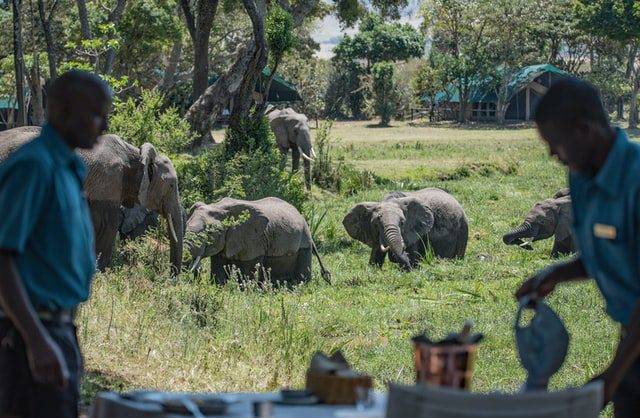Kenya’s Tourism Sector Lost USD 750 Mn Due to the Pandemic

The tourism sector in Kenya is not having the best of times. The sector has lost up to KES 80 Bn (USD 750 Mn) since the outbreak of COVID-19. The novel coronavirus crippled global travel, stifling international tourism which is the reason for most of the human mobility in the modern world.
The National Tourism Crisis Report (NTCR) has revealed that more than 1.6 million tourism jobs are at risk after international flights were banned. Najib Balala, Cabinet Secretary for Tourism launched the report yesterday at Kenyatta International Conference Center (KICC) and cautioned that things would get worse before they can improve.
According to the United Nations World Tourism Organization (UNWTO) (2020), international tourism has recorded remarkable growth for a decade. The report indicated that the tourism sector in Kenya is one of the leading sources of foreign exchange with annual estimated earnings of KES 163.56 Bn (USD 1.54 Bn).
The projection of a 1 percent growth in foreign exchange due to tourism is now highly untenable. Factors that will hinder this estimation are related to the closure of hotels, strict travel restrictions, and grounded airlines. Domestic tourists are equally being kept at bay. Records from NTCR show that there are currently no records on bed-nights as compared to 2018 which recorded 4.6 million.
The peak season which is always July-October accounted for 60 percent of all the arrivals last year during which a total of 2,048,334 international visitors arrived in Kenya, of which 1,423,971 landed at Jomo Kenyatta International Airport (JKIA) in Nairobi, and 128,222 in Moi International Airport (MIA), in Mombasa. Additionally, 29,462 visitors arrived at other airports whereas 467,179 arrived by land.
Available data points to a double-digit reduction of 22 percent in the first quarter of 2020, with arrivals in the March down by 57 percent. The losses to be suffered by airlines and other mega carriers by the end of the year may be unprecedented.
Most of the hotels are empty save for skeleton staff working on rotational shifts. For instance, the Serena chain of hotels has temporarily ceased its operations and closed 10 of its lodges indefinitely. Hotels in the Diani South Coast and Bamburi, North Coast, were bustling with tourist activity before the coronavirus struck. International tourists trooped to those resorts. This is no longer the case.
Renowned tourism parlour, Maasai Mara Wildlife Reserve, has laid-off workers and scaled-down operations. The net contribution of the hospitality industry which stands at 10 percent of Kenya’s annual economic output has tremendously declined.
The dwindling fortune of a once-vibrant sector is pegged on porous security systems, especially frequent attacks by the Al Qaeda-linked terrorist organisation, Al-Shabaab. This has put the nation in a precarious condition giving free reign to countries like South Africa as a preferential choice for tourists. The uncertain and unpredictable political environment is also largely blamed on the woes bedevilling the sector.
The government has set aside KES 500 Mn (USD 5 Mn) as a stimulus package to cushion the sector. It is anticipated that it will facilitate a post-recovery strategy from the shock caused by the pandemic.
Photo by David Clode on Unsplash